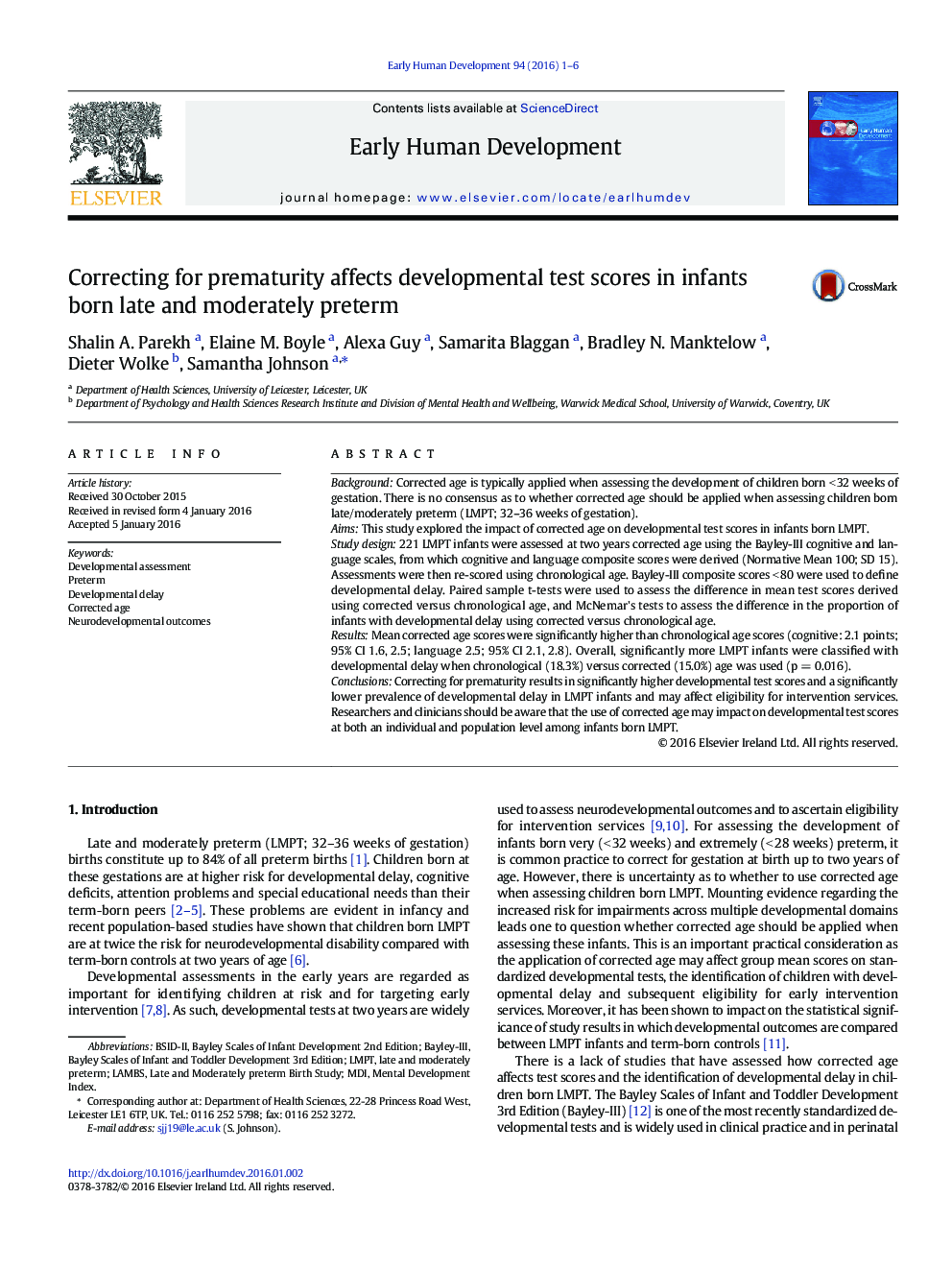| Article ID | Journal | Published Year | Pages | File Type |
|---|---|---|---|---|
| 3916475 | Early Human Development | 2016 | 6 Pages |
•Correction for prematurity is used to assess the development of very preterm infants.•There is no consensus regarding the use of corrected age when assessing infants born late and moderately preterm.•Significantly higher developmental test scores are obtained when using corrected age in late and moderately preterm infants.•Correction for prematurity may affect eligibility for intervention services in children born late and moderately preterm.
BackgroundCorrected age is typically applied when assessing the development of children born < 32 weeks of gestation. There is no consensus as to whether corrected age should be applied when assessing children born late/moderately preterm (LMPT; 32–36 weeks of gestation).AimsThis study explored the impact of corrected age on developmental test scores in infants born LMPT.Study design221 LMPT infants were assessed at two years corrected age using the Bayley-III cognitive and language scales, from which cognitive and language composite scores were derived (Normative Mean 100; SD 15). Assessments were then re-scored using chronological age. Bayley-III composite scores < 80 were used to define developmental delay. Paired sample t-tests were used to assess the difference in mean test scores derived using corrected versus chronological age, and McNemar's tests to assess the difference in the proportion of infants with developmental delay using corrected versus chronological age.ResultsMean corrected age scores were significantly higher than chronological age scores (cognitive: 2.1 points; 95% CI 1.6, 2.5; language 2.5; 95% CI 2.1, 2.8). Overall, significantly more LMPT infants were classified with developmental delay when chronological (18.3%) versus corrected (15.0%) age was used (p = 0.016).ConclusionsCorrecting for prematurity results in significantly higher developmental test scores and a significantly lower prevalence of developmental delay in LMPT infants and may affect eligibility for intervention services. Researchers and clinicians should be aware that the use of corrected age may impact on developmental test scores at both an individual and population level among infants born LMPT.
